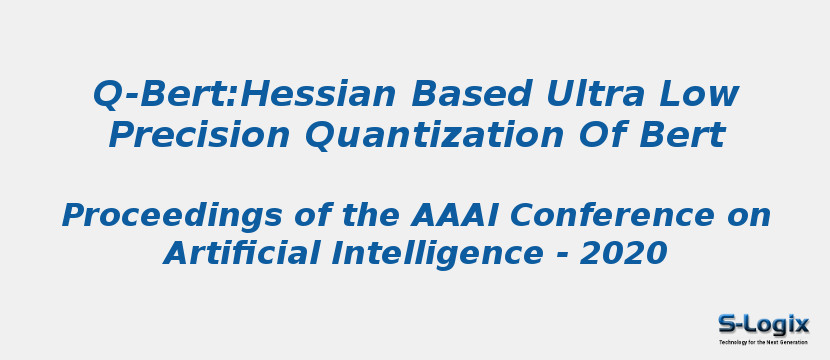Research Area: Machine Learning
Transformer based architectures have become de-facto models used for a range of Natural Language Processing tasks. In particular, the BERT based models achieved significant accuracy gain for GLUE tasks, CoNLL-03 and SQuAD. However, BERT based models have a prohibitive memory footprint and latency. As a result, deploying BERT based models in resource constrained environments has become a challenging task. In this work, we perform an extensive analysis of fine-tuned BERT models using second order Hessian information, and we use our results to propose a novel method for quantizing BERT models to ultra low precision. In particular, we propose a new group-wise quantization scheme, and we use Hessian-based mix-precision method to compress the model further. We extensively test our proposed method on BERT downstream tasks of SST-2, MNLI, CoNLL-03, and SQuAD. We can achieve comparable performance to baseline with at most 2.3% performance degradation, even with ultra-low precision quantization down to 2 bits, corresponding up to 13× compression of the model parameters, and up to 4× compression of the embedding table as well as activations. Among all tasks, we observed the highest performance loss for BERT fine-tuned on SQuAD. By probing into the Hessian based analysis as well as visualization, we show that this is related to the fact that current training/fine-tuning strategy of BERT does not converge for SQuAD.
Keywords:
Author(s) Name: Sheng Shen, Zhen Dong , Jiayu Ye, Linjian Ma, Zhewei Yao , Amir Gholami , Michael W. Mahoney,Kurt Keutzer
Journal name:
Conferrence name: Proceedings of the AAAI Conference on Artificial Intelligence
Publisher name: Association for the Advancement of Artificial Intelligence
DOI: 10.1609/aaai.v34i05.6409
Volume Information:
